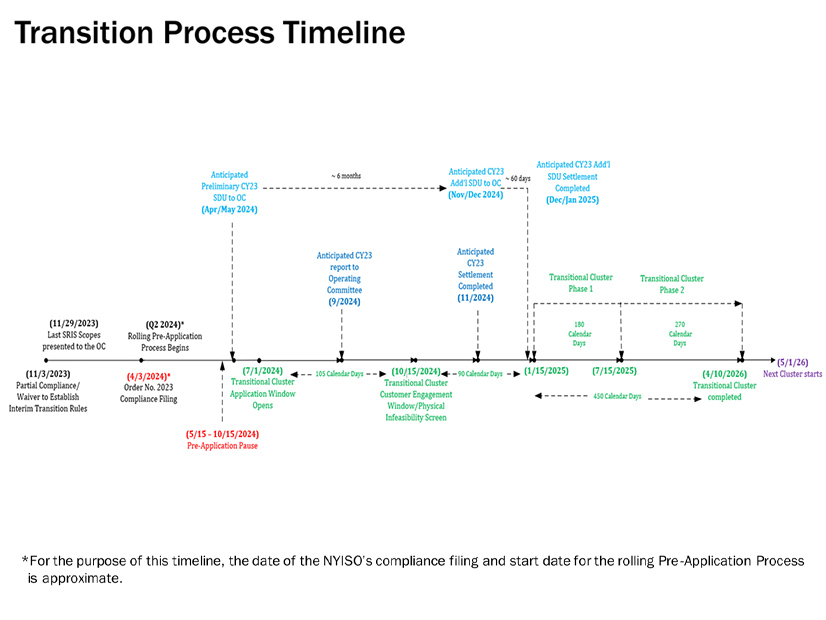FERC on Jan. 25 granted NYISO a waiver allowing a temporary suspension of tariff rules for its interconnection study processes to assist developers and facilitate a smoother transition to the procedures prescribed by Order 2023 (ER24-342).
NYISO has been working to implement the commission’s order, which seeks to unclog the nation’s interconnection queues. It submitted a partial compliance filing in November and was granted an extension to April 3 to submit its full proposal. (See NYISO Stakeholders Question Proposed Interconnection Timelines, Deposit Rules.) In the meantime, developers under the ISO’s current tariff rules face mandatory feasibility and system impact studies for their queued projects at their own expense.
To address this, NYISO proposed in its waiver request to establish a set of limited interim rules for its large facility interconnection procedures (LFIP) that would allow developers to choose between completing ongoing studies, opting for limited studies, withdrawing without penalty or not starting studies at all. The ISO argued that these proposed rules would “minimize the expense, time and resources” needed to advance studies in the interconnection queue.
NYISO’s current LFIP require developers to undergo three successive studies: an optional feasibility study that evaluates a project’s configuration and local system impacts; a system impact study that evaluates a project’s impact on transfer capability and system reliability; and a class year facilities study that evaluates the cumulative impact of a group of projects.
Now developers can either remain in the interconnection queue or withdraw their requests, thereby avoiding unnecessary costs until the new procedures take effect. However, they must make their decision within 30 calendar days following FERC’s order.
The commission said the waiver was “limited in scope,” remedies a “concrete problem” and would not “have undesirable consequences.”
NYISO has nearly 530 projects in its interconnection queue, and nearly all of them are renewable projects, according to an S&P Global analysis.
The waiver is effective beginning retroactively from Nov. 30 until FERC rules on the ISO’s partial compliance filing. The commission noted that it made “no findings as to the merits of NYISO’s partial compliance filing at this time.”



